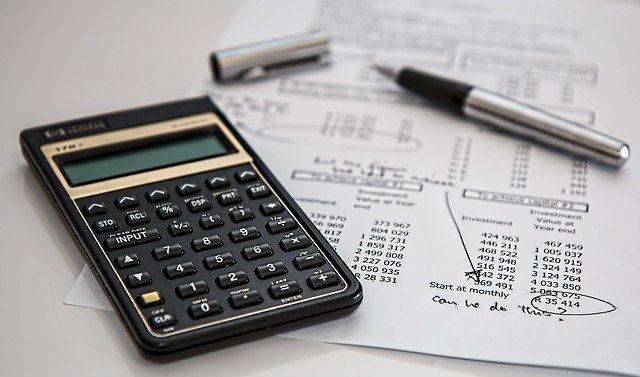Real estate investment in Las Vegas is lucrative, whether you’re looking for your next home or a place that you can rent out. According to recent data, the value of Las Vegas homes have appreciated nearly 23.3% in 2020. Over the last ten years, Las Vegas real estate appreciated by about 223.5%.
Las Vegas is also a big rental property market, with almost 40% of the population renting. In 2021, the average rent for a 1-bedroom apartment is $1,250; a studio apartment, $1,026; and a 2-bedroom apartment, $1,595.
If you are considering buying a home in Las Vegas, NV, familiarizing yourself with the property taxes in this location will greatly help you plan ahead.
Real Estate Property Tax Rules in Las Vegas, NV
- Property taxes in Nevada are based on the market value of a property.
- County Assessors are required to reappraise all properties at least once every five years.
- Nevada’s property tax abatement law protects homeowners from steep increases in property tax bills, limiting annual increases on primary residences to a maximum of 3%.
- Given Nevada’s tax abatement law, property taxes can only increase by a maximum of 3%, even if home values increase by more than 3%.

Homeowners in Las Vegas, NV Benefit from Low Property Tax Rates
- The property tax rates in Nevada are some of the lowest in the nation.
- In Las Vegas, NV, the estimated annual property taxes can be calculated at roughly .5% to .75% of the home purchase price.
- The average effective property tax rate in Nevada is 0.53%, while the national average is 1.07%.
- The low rate on property taxes is one of the main reasons people are investing in real estate in Las Vegas.
- Property taxes in Nevada pay for local services, such as roads, schools, and police.
Property Tax Rates in Las Vegas, NV
- Actual property tax rates in Las Vegas, NV depends on your tax district.
- A tax district is an area defined within a county for taxing purposes.
- In Clark County, where Las Vegas is located, there are currently 92 separate tax districts.
- The tax rate for each district is based on the monetary allocation for government-provided services, such as schools, police, fire, parks, libraries, and capital projects.
Property Tax Rates Per Tax District in Las Vegas, NV
- The property tax rate for Tax Districts 200, 203, 204, 206, 207, 208, 210, 212, 213, and 214, for the fiscal year 2021-2022 is 3.2782.
- The property tax rate for Tax Districts 250, 253, 254, 255, 256, and 257 for the fiscal year 2021-2022 is 3.3544.
- The property tax rate for Tax District 257a for the fiscal year 2021-2022 is 3.1844.
- This link provides further details for each tax district.
Effective Property Tax Rates in Las Vegas, NV
- The effective property tax rate is the annual property tax payment as a percentage of home value.
- The average effective property tax in Clark County where Las Vegas is located is 0.65%.
- This rate is slightly higher than the statewide average, but still significantly lower than the national average.

Determining the Taxable Value of a Property in Las Vegas, NV
- Taxable value is the value of the real estate property as determined by the Assessor.
- Generally speaking, the taxable value of real property is the market value of the land and the current replacement cost of improvements less statutory depreciation.
- Under Nevada law, the taxable value should not exceed the full cash value of the home, and the County Assessor is required to make a reduction if the homeowner provides the facts warranting it.
- When determining whether taxable value exceeds full cash value, the Assessor may consider comparable sales based on prices actually paid in market transactions.
How to Calculate the Taxable Value of a Property in Las Vegas, NV
- When computing for the taxable value of a property, the appropriate method used by the Assessor under the current law is the cost method, using replacement cost.
- Using the cost method, the Assessor calculates the amount and cost of materials and labor it would take to replace the subject property and applies a depreciation factor of 1.5% per year to the effective age of the property, up to a maximum of 50 years. Then land values derived from market sales or other recognized appraisal methods are added to the improvement value.
How to Calculate the Assessed Value of a Property in Las Vegas, NV
- The assessed value of a property is equal to 35% of the property’s taxable value.
- For example, if your home’s taxable value is $100,000, the assessed value is $35,000 and tax rates shall apply to this amount.

How to Calculate Property Taxes in Las Vegas, NV
- To calculate the amount of property taxes a Nevada homeowner needs to pay, the tax rate is multiplied by the assessed value of the property, including both land and improvements made on the house.
- According to Nevada law NRS 361, the assessed value of a property is based on a ratio of 35% of the taxable value which is determined by guidelines established by the State Department of Taxation.
Property Tax Payment Options for Las Vegas Homeowners
- Credit card (Visa, MasterCard, or Discover)
- E-check payments
- Phone: (702) 455-4323
- Check by mail, made payable to Clark County Treasurer
- Online bill payment services through your financial institution
- Drop box: located by the pyramid on the southwest side of the County Government Center at 500 S Grand Central Pkwy Las Vegas, NV 89106. Payments should be in the form of a check or money order made payable to Clark County Treasurer and placed in an envelope.
- In person: 500 S Grand Central Pkwy Las Vegas, NV 89106 (1st floor behind the security desk)
How to Appeal Your Property Tax Bill in Las Vegas, NV
- You may call or go to the Assessor’s Office to discuss your property value with an appraiser if, in your opinion, the taxable value of your property is greater than the value indicated in the real estate market.
- If the Assessor denies your request, you may appeal your assessment to the County Board of Equalization.
- If, after hearing your petition, the County Board still agrees with the Assessor’s appraisal, you may appeal the County Board’s decision to the State Board of Equalization.
- If the State Board decides in favor of the Assessor’s Office, you may take your appeal to District Court.
For more information about property taxes in Las Vegas, Nevada you may go to the Clark County Tax Assessor-Collector’s website.




